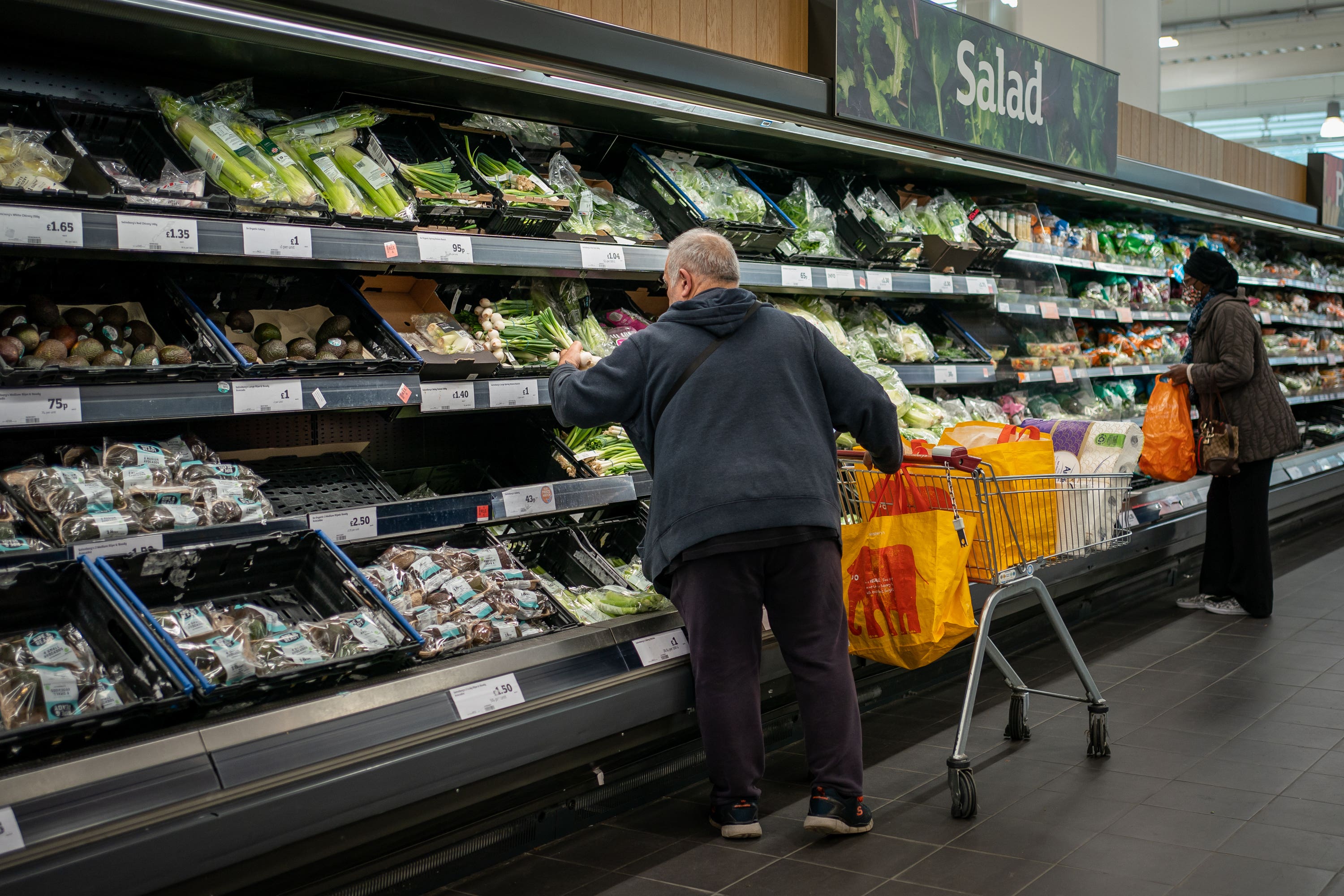Don’t let this inflation peak lull you into a false sense of security
With wage rises continuing to undershoot inflation, the cost of living crisis is far from over, writes James Moore


Could this really be the beginning of the end of Britain’s national inflation nightmare?
November’s Consumer Price Index (CPI) came in at 10.7 per cent. That was down on the previous month’s 11.1 per cent and below the consensus City forecast of 10.9 per cent.
The initial driver for the continuing surge in prices was, as we are all too painfully aware, energy. But at some point, the sudden spike in prices that followed Putin’s illegal invasion of Ukraine was bound to wash through the system. For CPI inflation to continue in double figures you would need a second spike of a roughly similar magnitude and that hasn’t happened.
This provides a technical reason for the fall in the annual rate of price rises. It helps to explain the view of those economists who think inflation may finally have peaked.
Some of the main contributors to November’s fall included a decline in the rate of price rises of clothing, toys and games (very welcome this time of year for obvious reasons), tobacco and especially motor fuel and second-hand cars.
The transport sector’s rate of increase has, in fact, halved since peaking at 15.2 per cent in June.
Another welcome sign was that core inflation, which excludes volatile contributors such as energy and food, fell to 6.3 per cent from 6.5 per cent.
On the flip side, prices in pubs, restaurants and cafes, which were falling this time last year, rose sharply. Those outlets have been hit hard by cost pressures. Some may end up giving up the ghost as penny-pinching consumers reign in their spending.
Were economists right to call the peak? The ONS’s chief economist Grant Fitzner urged caution when he took to the airwaves upon the release of the figure.
History tells us this was wise. We’ve had false dawns before. The Bank of England’s initial view was that the uptick in prices would prove to be temporary. It certainly doesn’t feel that way now.
The Bank’s view on this obviously counts for an awful lot with the decision of the Monetary Policy Committee (MPC) due just over a day after the CPI’s release.
It has lately sought to guide expectations for the interest rate peak down. The tone of recent comments from MPC members has been heard by the City. Forecasts of a high point of 4.5 per cent have been clipped.
This matters to borrowers. Fixed-rate mortgages are priced based on the interest rate swaps market, which is governed by longer-term expectations for rates. That these are coming down is welcome news for home buyers and in particular, first-time buyers.
It certainly seems unlikely that we will see a repeat of the wrenching 0.75 per cent increase in base rates imposed at the conclusion of the last MPC meeting six weeks ago. Most forecasters are expecting that another 0.5 per cent will be added to the current 3 per cent.
However, it is just possible, particularly given the more dovish makeup of the committee in the wake of the recent turnover in its external members, that it may spring a surprise. Even if it doesn’t, the way the votes fall will merit close attention. The decision to increase by 0.75 points last time was not unanimous.
I would still, however, be with the rate hawks led by Catherine Mann for now, if only because of the horrific impact these price rises are having on the poorest Britons.
“Sharpest fall in inflation in 16 months will be of more comfort to policymakers than families,” thundered the Resolution Foundation, a think tank focused on low earners in response to the ONS release.
That is a very valid point when you consider that Resolution’s estimate of the rate of inflation experienced by the poorest tenth of households was12.1 per cent in November compared to just 9.4 per cent for the wealthiest ten per cent.
Food prices are proving particularly problematic on breadline Britain. While the CPI may have fallen overall, this volatile component of the index increased to a truly stomach-churning 16.6 per cent from 16.5 per cent the previous month. The price of some staples increased by even more than that.
The hard fact is that the cost of living crisis is still very much with us. Even with inflation coming down, it shows no sign of abating. Wage rates continue to undershoot inflation by a considerable amount. The financial situation of poorer families, with their backs against a wall that may vanish when the landlord bangs on the door seeking rent thay can’t afford, is still deteriorating.
From a moral, as much as an economic, point of view the MPC still has work to do to bring inflation down. Even when that work is done, even if those calling the peak are proved right, there will be a long tail of pain from this epoch.






Join our commenting forum
Join thought-provoking conversations, follow other Independent readers and see their replies
Comments